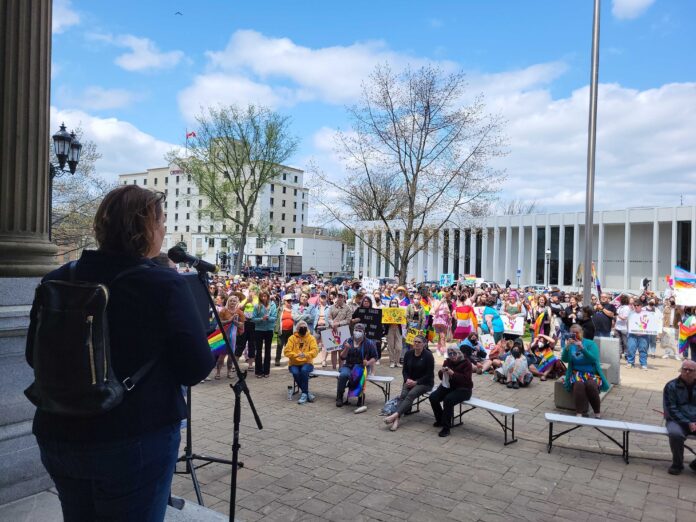

As a queer student who uses a different name and pronouns than the ones they were assigned at birth, St. Thomas student Ezra McIntyre knows what being misgendered in school feels like.
Having attended high school in Fredericton before and during Policy 713 was in place, they said before there was no mechanism “on paper” to address them by their preferred pronouns and name, making them feel “incredibly unheard.”
“Mentally, it was really not good for me,” said McIntyre.
Mcintyre recalls having to come out one by one to their teachers to have their identity respected. But this is not ideal, as it meant they had to constantly come out, even if they did not feel ready.
“What happens when you have a substitute in? Do you raise your hand on your name? Do you let it roll over to have your parents get called absent? Or do you out yourself?”
They also did not feel comfortable coming out to one teacher who had shown conservative commentator Ben Shapiro in class, leading them to be misgendered for the entire year.
“I was going in daily to this class and having to answer to something that made my heart internally jump and having to reduce myself into something that I don’t have a connection with.”
That changed in August 2020, when Policy 713 was passed to set the minimum requirements for creating a safe and inclusive environment in school for 2SLGBTQIA+ students.
To McIntryre, the implementation of Policy 713 is an “essential form of support” for students like them.
“It would have just absolutely crushed me If I didn’t have [Policy 713]. I don’t know what I would have done.”
However, in June 2023, Education Minister Bill Hogan revised the policy to require parental consent for teachers to use the preferred names and pronouns of students under the age of 16. With changes to Policy 713, McIntyre warns students will either have to deal with being misgendered at the cost of their mental health or possibly be outed when they are not ready.
“I was lucky enough that even though I wasn’t out to my parents at the time, I knew they weren’t going to cast me off,” they said. “I knew kids who would have been and I don’t think that’s changed at all.”
Now, as a third-year student at STU, McIntyre said the topic needs to be treated politically. They think anti-2SLGBTQIA+ rhetoric is behind the review to Policy 713, which is why they are looking at politicians with more suspicion.
“We are overall voting for the guy next door, and the guy next door happens to hate queer kids.”
With files from Shannon Munro.
